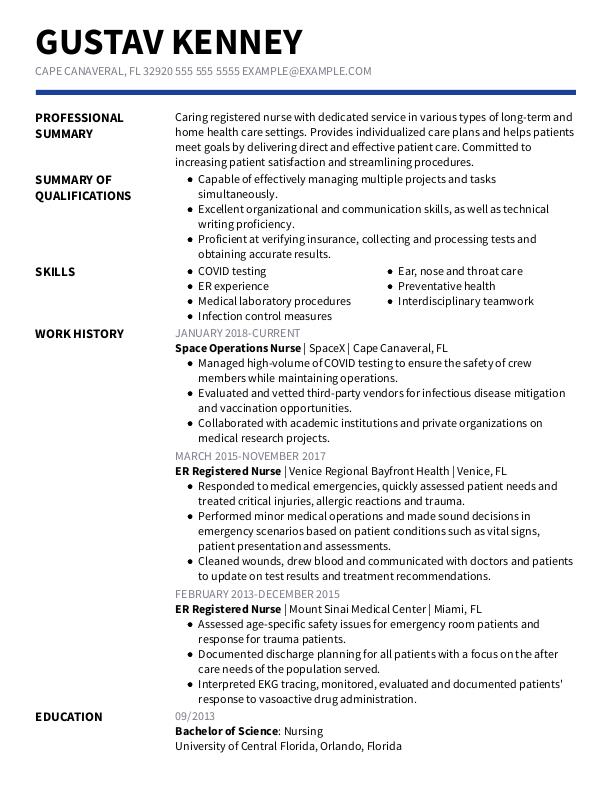Nursing Resume Template And Examples
Nursing is a very diverse profession with opportunities for all sorts of environments, including:
- Hospitals
- Urgent care facilities
- Schools
- Assisted living homes
- Government agencies
- Specialist offices
You need excellent communication, emotional intelligence, and critical thinking skills to be a good nurse. You also need a great resume that showcases these qualifications.
A great resume like the ones on this page can be the difference maker in getting your next job as a nurse.
Check out more of our downloadable resume examples designed by career experts and use one of our free and premium resume templates today!
Registered Nurse (RN) Resume: Why It Works
Registered nurses (RN) are certified to provide crucial patient care and support other healthcare professionals.
Here is a great example of a registered nurse’s resume to see what you can do when applying for nursing jobs.
-
Clarity:
This resume is written so that every bit of information and qualification is clear and concise, crating a more impactful reading experience.
-
Relevance:
Only relevant information can be found on this resume to help the nursing applicant stand out among other candidates.
-
Easy to read:
By keeping things clear and relevant, this nursing resume is a great example of an easy-to-read experience, which increases your chances of getting an interview.
-
ATS-friendly:
This template can be scanned by most applicant tracking systems so that you can be sure your qualifications will be categorized correctly.
Nurse Practitioner (NP) Resume: Why It Works
Nurse practitioners (NP) are licensed to perform many independent tasks that make them autonomous healthcare professionals.
This example shows how to correctly format a resume for a nurse practitioner for any application.
-
Unique:
This resume stands out with its combination of colors and headings which help draw the eye to important qualifications.
-
Professional:
The layout of this resume keeps everything organized, consistent, and straightforward, just as a professional resume should be.
-
Accessible:
With an easy-to-read template and an ATS-friendly format, this nursing resume example can be used for any application in healthcare.
-
Engaging:
All of the qualities of this resume combine to keep the reader engaged, helping them process the information better and giving you the best chance to get an interview.
How To Write A Nursing Resume
Writing a nursing resume does not have to be a challenge.
Follow these steps to understand how to use our examples for nurses and write the best resume that works for you!
-
Read the Job Description:
The job description will contain key information about the required skills, experience, responsibilities, and other qualifications. Use these keywords to tailor your resume to the job because that will help you stand out and make your resume ATS-friendly.
-
Contact Information:
The first step to writing a resume is to include your contact information. This is so that the recruiter or hiring manager can easily get a hold of you. Make sure to use a professional email address that is appropriate for sharing.
-
Summary or Objective:
The resume profile can be either a summary or objective statement. Both provide a brief, one to three-sentence preview about you and your qualifications. Use a resume summary when you have previous work experience you can highlight. Use a resume objective statement when you lack experience but have the skills and dedication to be an excellent employee.
-
Work History:
It is highly recommended to list your professional experience in bullet form demonstrating your qualifications. Showcase your skills by providing quantifiable achievements that added value to your employer.
-
Skills:
Use the skills section on your resume to highlight your nursing abilities further. Categorize your skills into common traits so that the reader can quickly understand what you have to offer.
-
Education:
In the education section you will want to provide your most recent and highest educational degrees. This is especially important if you have an associate's, bachelor's, master's, or doctorate degree in nursing.
-
Additional Sections (optional):
You can provide additional sections, such as awards, certifications, affiliations or volunteer experience to further your case as a highly qualified nurse.
Skills For Nursing Resumes
Your skills section is a great way to highlight your top skills, but solely having a dedicated section can be limiting as it only allows for six to eight skills and doesn’t contain your experience applying the skills.
Soft Skills for Nursing Resumes
Soft skills are the most crucial aspect of being a nurse. These skills entail dealing with patients compassionately and reporting to doctors and other nurses, being able to work long hours, and communicating medical requirements. Some of the essential skills to have are:
- Communication
- Empathy
- Critical thinking
- Conflict resolution
- Strong work ethic
- Adaptability
- Creativity
- Open-mindedness
- Stamina
- Organization
Hard Skills for Nursing Resumes
Hard skills relate to the job-specific knowledge and proficiency required to perform the duties of the role. For example, a nursing position may require knowledge of drug administration or bedside assistance in surgery. The top hard skills required from a nurse are:
- Recording vital signs
- Performing CPR
- Medication scheduling
- Disease assessment
- Measuring bodily fluids
- Physical examination
- Diagnostic testing
- End-of-life care
- Alternative solution knowledge
- Meal planning and preparation
- Telemetry devices
- Respiratory devices
Key Certifications For Nursing Resumes
In the field of nursing, certifications play a vital role in showcasing a nurse’s expertise and commitment to providing high-quality patient care. These certifications not only demonstrate specialized skills but also enhance career opportunities and earning potential.
Top 5 Certifications for Nursing Resumes
- Registered Nurse (RN): The RN certification is fundamental and is required to practice as a nurse in most healthcare settings. It validates the nurse’s core competencies and knowledge, making it an essential certification for any nursing resume.
- Certified Nurse Assistant (CNA): A CNA certification is valuable for those starting their nursing careers, as it provides the foundational skills and experience needed for patient care. It’s an excellent way to enter the nursing profession.
- Certified Pediatric Nurse (CPN): This certification is crucial for nurses specializing in pediatric care. It demonstrates a nurse’s ability to provide specialized care to children and their families, enhancing their appeal to pediatric healthcare providers.
- Certified Emergency Nurse (CEN): For nurses working in emergency and critical care settings, the CEN certification is highly respected. It signifies a nurse’s proficiency in handling emergency situations and life-threatening conditions.
- Certified Nurse Midwife (CNM): CNM certification is for those interested in maternal and child health. It authorizes nurses to provide prenatal, postpartum, and childbirth care, making them essential in women’s health services.
Helping Job Seekers Like You
7 Tips For Writing A Nursing Resume
- Highlight Your Credentials: Begin your resume with a strong summary showcasing your nursing credentials and certifications, such as RN or CNA, to grab the attention of potential employers immediately.
- Emphasize Clinical Experience: In the experience section, provide details about your clinical experience, including the types of patients you’ve worked with, medical procedures you’re proficient in, and any specialties or departments you’ve excelled in.
- Quantify Achievements: Use quantifiable metrics to illustrate your impact, such as the number of patients you’ve cared for, successful outcomes, or the percentage of improvement in patient conditions due to your care.
- Include Continuing Education: Highlight your commitment to ongoing professional development by mentioning any additional certifications, workshops, or courses you’ve completed to stay current in the nursing field.
- Showcase Soft Skills: Nursing requires excellent interpersonal skills and empathy. Mention your ability to communicate effectively with patients, their families, and the healthcare team, as well as your adaptability, problem-solving skills, and emotional resilience.
- Tailor Your Resume: Customize your resume for the specific nursing role you’re applying for. Address the unique requirements of each job posting and use keywords from the job description to increase your chances of passing applicant tracking systems.
- Professional Memberships: If you’re a member of nursing associations or organizations like the American Nurses Association (ANA) or the National Student Nurses’ Association (NSNA), mention these affiliations to demonstrate your commitment to the profession.
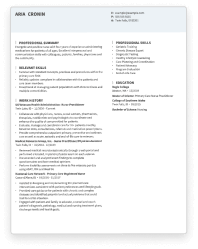
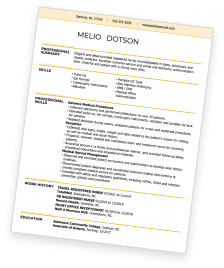
Save Time With Our Resume Builder
Key Takeaways
A resume example is a great way to help you with your nursing application.
Tailor your resume to the job description to grab the attention of the reader.
Make sure to demonstrate your skills in your experience section to show why you are an excellent nurse.
Check Out Our Cover Letter Builder
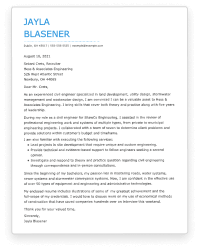
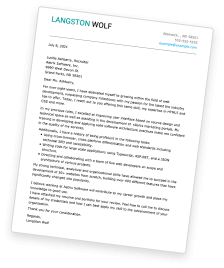
Nursing Resume FAQ
Different nursing roles demand expertise in various skills, but the top three skills that every individual in the nursing sector should have are:
Communication
Empathy
Recording vital signs
A nursing assistant's summary statement should showcase two to three soft skills with examples, the number of years of experience and at least one career achievement to validate their experience. A few other points to remember while writing an opening statement are:
Cater to the role and mention job-specific abilities and tasks.
Keep it concise and informative — three to four sentences should suffice.
Mention examples from practical experiences, ensuring to include at least one quantifiable metric.
A nurse’s duties depend on their role. For example, a caretaker in a nursing home will have different tasks than a registered nurse in a hospital. However, some general tasks all nurses would undertake are as follows:
Recording vital signs
Performing CPR
Medication scheduling
Physical examination
Diagnostic testing
Citations
Bureau of Labor Statistics. “Nurse Anesthetists, Nurse Midwives, and Nurse Practitioners,” Occupational Outlook Handbook, September 2022. https://www.bls.gov/ooh/healthcare/nurse-anesthetists-nurse-midwives-and-nurse-practitioners.htm
Bureau of Labor Statistics. “Registered Nurses,” Occupational Outlook Handbook, September 2022. https://www.bls.gov/ooh/healthcare/registered-nurses.htm
Olvia Crosby, “Resume, Applications, and Cover Letters,” Occupational Outlook Quarterly, 2009, https://www.bls.gov/careeroutlook/2009/summer/art03.pdf.

